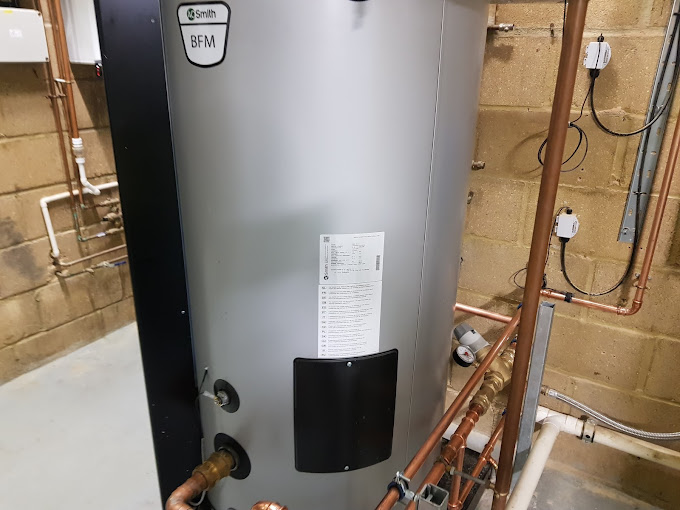If you’re in the market for a new boiler, you may have come across the term “combi boiler” and wondered what it means. A combi boiler, short for combination boiler, is a type of central heating boiler that provides both hot water and heating to a property from a single unit.
In this blog post, we’ll explore what a combi boiler is, how it works, and the advantages and disadvantages of this type of boiler.

What is a Combi Boiler?
A combi boiler is a high-efficiency boiler that provides both hot water and heating to a property from a single unit. It works by heating cold water directly from the mains as it passes through the unit, rather than storing hot water in a cylinder or tank. This means that there is no need for a separate water storage tank, making the combi boiler an ideal choice for properties with limited space.
How Does a Combi Boiler Work?
Combi boilers work by heating cold water directly from the mains as it passes through the unit. A heat exchanger that is within the boiler then heats the water. This circulates the property’s central heating system to provide heating.
When a hot water tap is turned on, the combi boiler detects the flow of water and begins to heat the water on demand. This means that the hot water is delivered at the mains pressure, providing a strong and consistent flow of hot water throughout the property.
Advantages of a Combi Boiler:
- Space saving – A combi boiler doesn’t require a separate water storage tank, freeing up valuable space in your home.
- Energy efficient – Combi boilers are highly efficient, with a 90%+ efficiency rating, which means that they waste very little energy.
- Cost-effective – As there is no need for a separate water storage tank, the installation costs for a combi boiler are typically lower than other types of boilers.
- Quick and easy installation – A combi boiler can be installed quickly and easily, often in just a few hours.
- A strong and consistent flow of hot water – A combi boiler provides hot water at mains pressure, which means that you’ll enjoy a strong and consistent flow of hot water throughout your property.
Disadvantages of a Combi Boiler:
- Limited hot water supply – As the hot water is heated on demand, there may be a limit to the amount of hot water that can be delivered at any one time. This can be a disadvantage if you have a large family or a high demand for hot water.
- Incompatible with some shower types – Combi boilers are not always compatible with certain types of showers, such as power showers or electric showers. It’s important to check the compatibility of your shower before choosing a combi boiler.
- Relies on mains pressure – A combi boiler relies on mains pressure to deliver hot water, which means that if there is low mains pressure in your area, you may experience a weaker flow of hot water.
- May not be suitable for larger properties – As combi boilers are designed to provide hot water on demand, they may not be suitable for larger properties with a high demand for hot water.
In conclusion, a combi boiler is a popular choice for homeowners looking for an efficient and space-saving solution for their heating and hot water needs. If you’re in the market for a new boiler, be sure to consider a combi boiler as a viable option for your property.
If you have any other questions regarding boilers, don’t hesitate to reach out to ROMA Heating for expert plumbing service and advice.